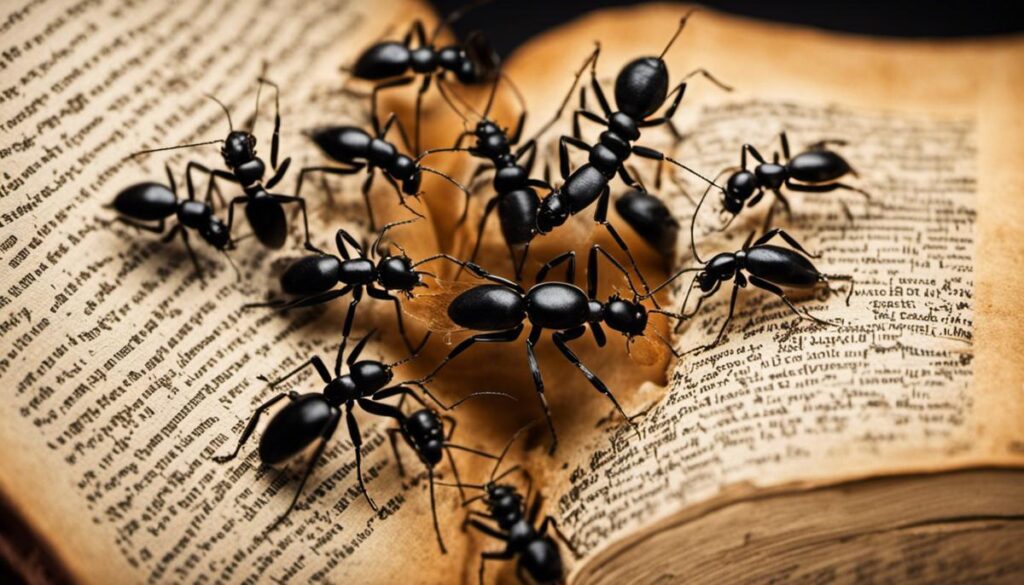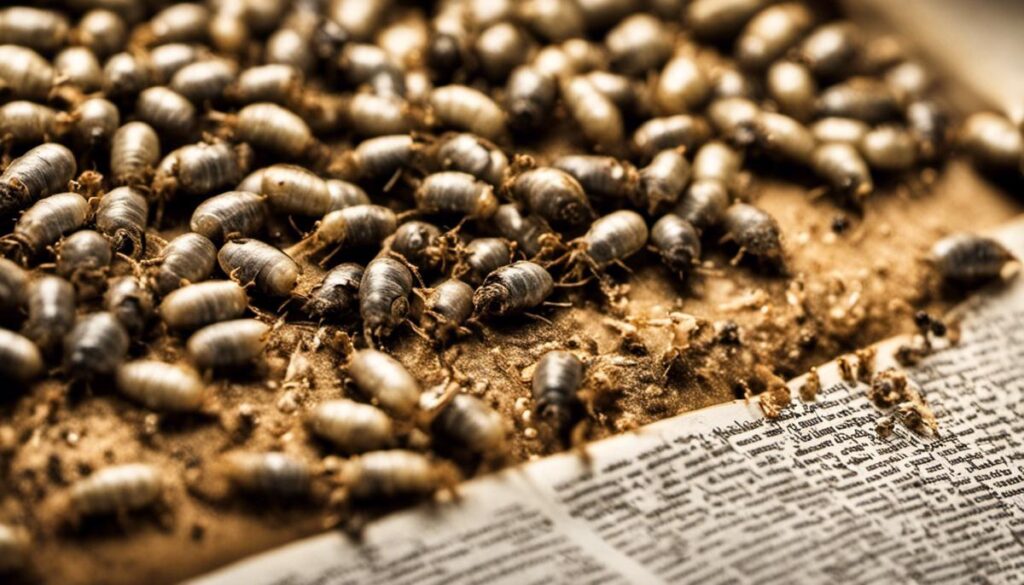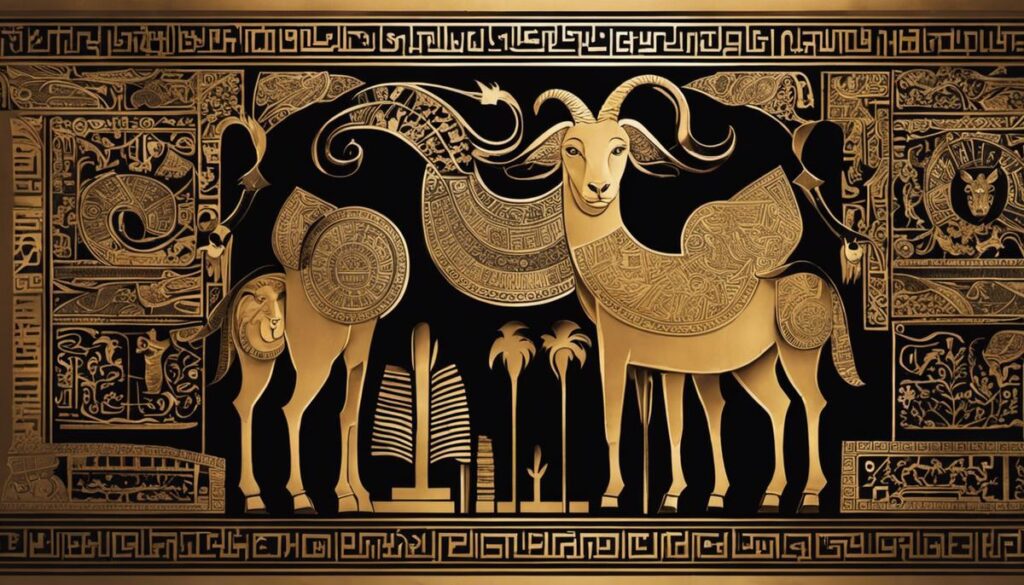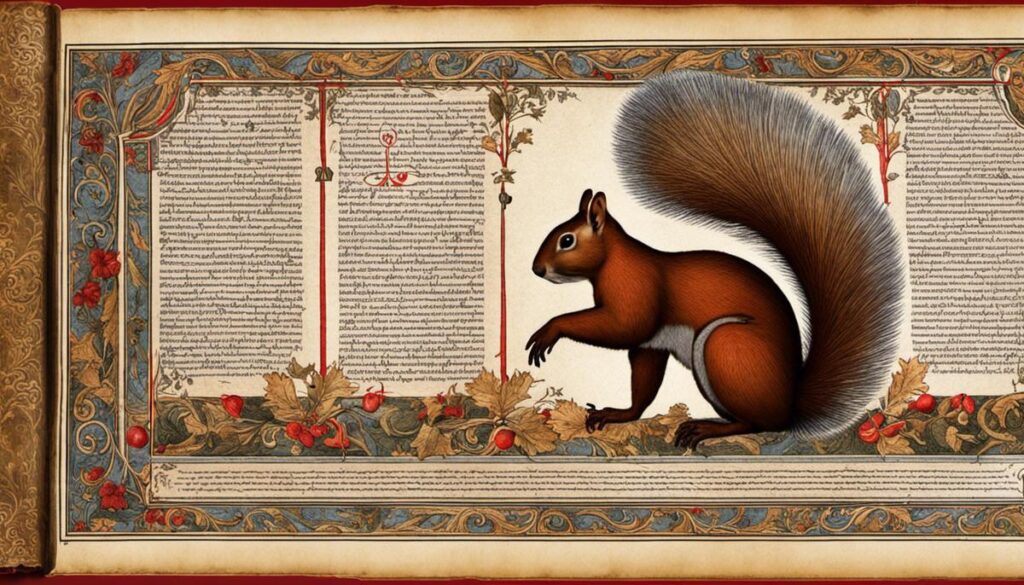In almost every corner of the world, ants are recognized for their industrious nature and determination. They are a universal symbol of hard work, structure, persistence, and unity. In biblical literature as well, ants hold significant symbolism. The subtle yet profound attributes associated with ants provide invaluable life teachings and virtues. Particularly, the appearance of black ants in dreams is considered to be of noteworthy interpretation within psychological and spiritual dimensions. This discourse aims to delve into the symbolism of ants in the Bible, analyze their appearance in dreams, and further seek to understand the biblical meaning of encountering black ants within the dream realm.
Symbolism of Ants in the Bible
Ants in Biblical Texts: Symbolism and Significance
The realm of entomology intersects with the biblical narrative in unique ways, a fascinating example of which is the stature of ants. Ants, typically minuscule and often overlooked, hold an elevated position within biblical texts, symbolizing wisdom, industriousness, and practical planning. The well-established scientific understanding of the intricate societal structures and extraordinary work ethic of ants complements the portrayal of these creatures in sacred literature, lending to interdisciplinary enlightenment.
The Book of Proverbs in the Old Testament particularly highlights the attributes associated with ants. Proverbs 6:6 reads, “Go to the ant, thou sluggard; consider her ways, and be wise.” The verse proposes ants as an emblem of diligence, instructing indolent beings to ponder upon the self-sustained life cycle of ants that require no guide or overseer. Ants, despite their small size, are hardworking and highly organized, thus effectively playing their role in the ecosystem.
Supporting this portrayal, scientific research has unveiled the social structure of ants–their colonies operate with functional differentiation where ant agents contribute to communal labor for sustenance and defense. This notion reverberates in the context of biblical exhortation to diligence and collective contribution.
The correlation goes beyond simply industriousness. The Book of Proverbs 30:25 elucidates, “Ants are creatures of little strength, yet they store up their food in the summer.” This verse draws attention towards the strategic foresight and preparedness for adverse conditions exhibited by ants. While it recognizes the physical vulnerability of ants, it emphasizes their sagacious approach in saving resources for times of need, thereby underpinning values of prudence and preparedness.
Again, scientific observation reveals the extraordinary ability of ants to stockpile food, demonstrating behavioral resilience and survivalist instinct. Such foresight has contributed to the success and survival of ants in various harsh environmental conditions worldwide.
While ants are indeed fascinating creatures from both a scientific and biblical perspective, caution must also be exercised when transferring interpretations between the realms of science and religion. As scientists, we must affirm that the attribution of human traits or values to non-human entities is a matter of metaphorical significance and not literal imposition of anthropocentric perspectives.
In conclusion, the biblical portrayal of ants provides a fascinating example of how the natural world is incorporated into religious texts to offer moral and practical wisdom. The synergy between scientific understanding and textual interpretations enhances the richness of both realms, affirming the interconnectedness of all knowledge domains and the value of interdisciplinary exploration.
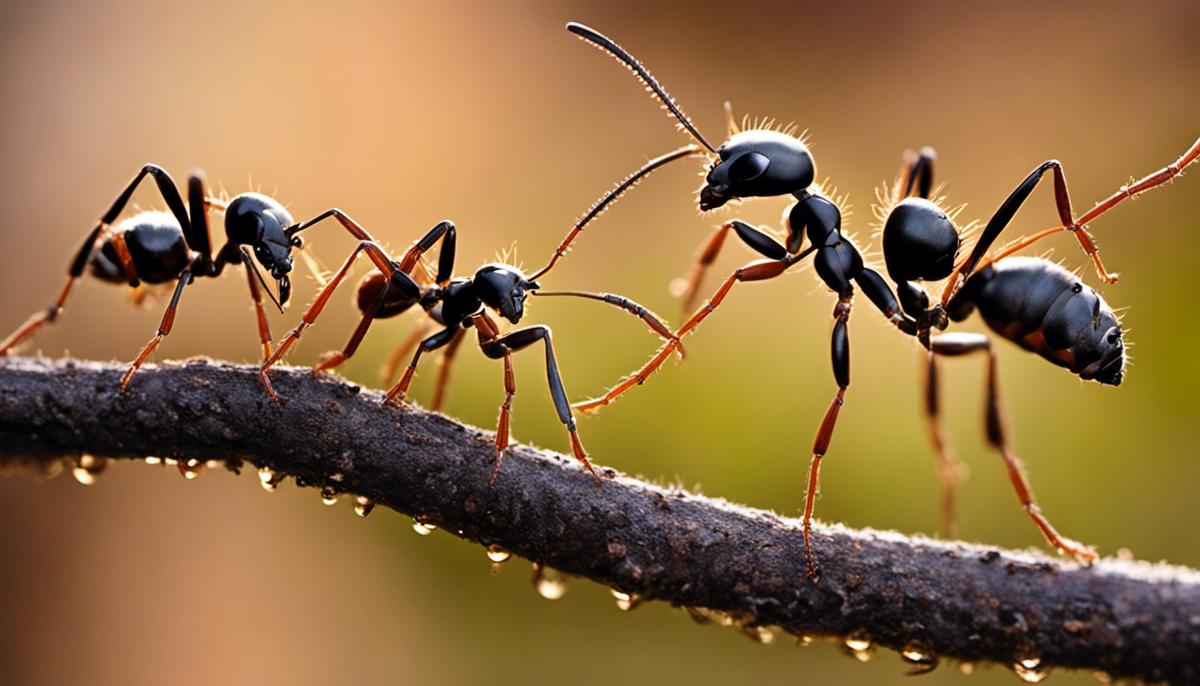
Analyzing Dream Encounters with Black Ants
The Nocturnal Symbology of Black Ants: An Integration of Dream Analysis and Etho-Entomology
In a deliberate yet thrilling exploration of human dreams and ant behavior, one tends to meet at the intersection of psychoanalysis and entomology. Intriguingly, the importance of black ants making an appearance in our dreams is deserving of comprehensive academic investigation. Although the subject matter may at first glance seem esoteric, it bears significant implications for the multidisciplinary analysis of human subconscious and socio-ecological interactions.
Within the psychoanalytic realm of dream interpretation, a fascinating approach by which Sigmund Freud, the famed father of psychoanalysis, decoding dreams as the deliberate manifestation of our subconscious desires, the presence of black ants mirrors one’s innate ability to be industrious, resilient, and unified. Black ants, in particular, are attributed to the realm of the shadow, typically associated with Carl Jung’s concept of the ‘Shadow Self’. Therein, the appearance of black ants invite introspection into our suppressed fears or unresolved issues, subtly suggesting the necessity for personal transformation and evolution.
Complementing this psychoanalytic perspective is the exciting field of Etho-Entomology, the study of insect behavior like ants, mirroring complex social systems. Black ants, through their incredibly intricate society structures, exhibit a sense of overwhelming unity, tireless work ethic, and exceptional organization. It is this unique combination of traits that serve as an emblem for cooperative functionality and optimal resource management. This convergence of psychological and entomological perspectives validates the significance of black ants within dreams, as a reflection of our subconscious understanding and connection with these resilient creatures.
Bridging the chasm between psychoanalysis and etho-entomology challenges us to diversify our knowledge frameworks and reshape preexisting notions. Dream theory tends to lean heavily on anthropocentric constructs, inadvertently neglecting the importance of ecological factors and interspecies relationships. The intersectionality of dreams involving black ants demonstrates the plasticity of human cognition, wherein our subconscious mind synthesizes behavioral analogies between species boundaries.
Venturing further into the realm of potential significance, black ants, due to their social structure and collective strength, have been often used as symbols indicating societal change, contributing to broader socio-political theories. Such associations may serve as subliminal prompts within our dreams fostering the breaking down of individual barriers and encouraging collective efforts.
In essence, inspection of such an interdisciplinary subject matter reveals the imperative of holistic and multiperspective interpretation. As scientists ardently dedicated to multifaceted development across seemingly disparate fields of knowledge, the incorporation of black ants within dreams serves as an enlightening example of the deep connections our psyche holds not only with our innate attributes but also with the natural world we find ourselves intricately woven into. Proper acknowledgement and understanding of such instances promise captivating progress in the academic landscape, underlining the essence of holistic methodologies in knowledge pursuits.
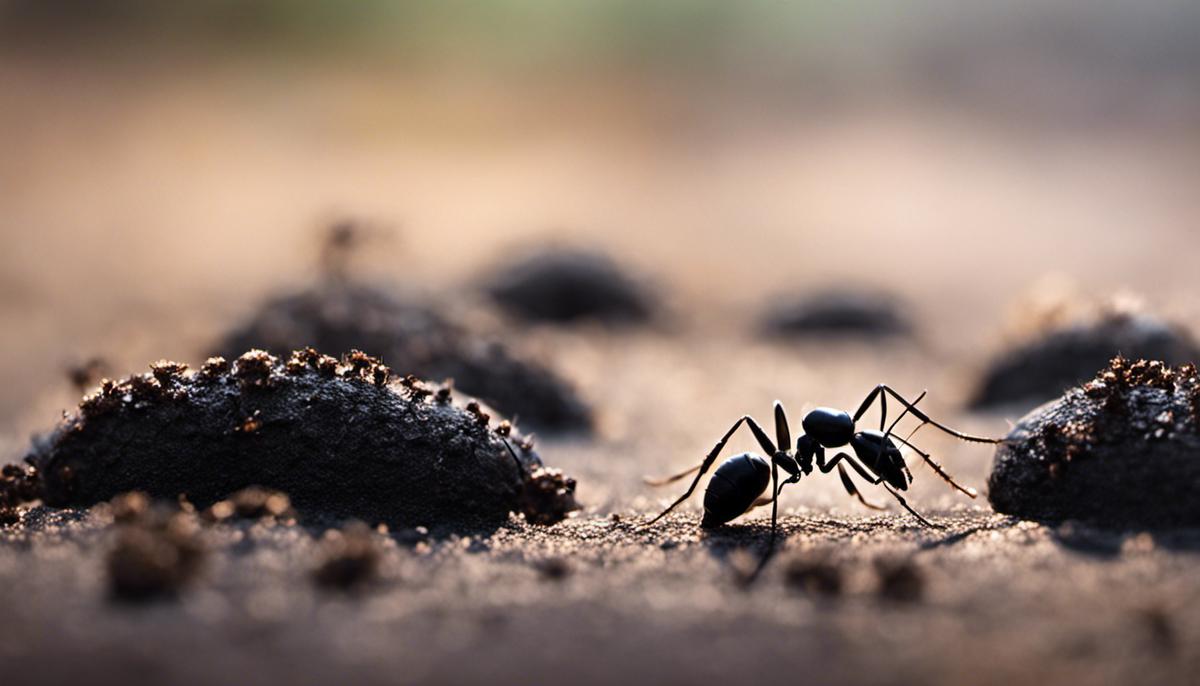
Biblical Interpretation of Dreams Involving Black Ants
The Keynote: Black Ants in Biblical Dream Interpretation
Venturing forth from the previously discussed topics, it is beneficial to delve deeper into the vivid depiction of black ants in dreams. From a psychoanalytic point of view, Sigmund Freud’s pioneering work in dream interpretation could provide a lens to interpret the biblical, as well as the inherently psychological aspects of this phenomenon.
A pivotal element in Freud’s theory is the notion of the ‘Shadow Self’. This represents the subconscious mind and ungoverned desires, often appearing in dreams in symbolic form. In this context, considering Etho-Entomology as an instrumental field, black ants could arguably be a manifestation of this ‘Shadow Self’. Thus, their appearance in dreams signifies not merely their biblical implications but a subconscious understanding, nudging one’s mind towards the unseen.
In the myriad world of insect behavior, black ants epitomize unity, organization, and work ethic. These traits, when encountered in dreams, may stir thoughts of orderliness and synergy, pointing towards the biblical exhortation of proactive contribution to the collective good.
Ecological factors and interspecies relationships further weave into the dream’s narrative. As fervent contributors to their ecosystem, black ants can be perceived as agents of change, of adaptive evolution. When applied to the dream narrative, they serve as indicators of socio-personal changes – a categorical transition, an imminent transformation or a subliminal need for societal evolution.
Inside the complexity of the dreaming mind, dreams act as silent prompts. The appearance of black ants might be a call for breaking down individual barriers, mirroring the relentless, unified pursuit of ants. The dream is hence a plea to foster unity, order, and industriousness. These are fields, not confined to the inside of an ant-hill but extend into the broader stretch of human interactions and activities.
Taking this psychoanalytic inference, it is pertinent then to adopt a holistic, multiperspective interpretation of dreams. Human attributes are finely intertwined with the natural world. The minuscule black ant, carrying an inspirational message of unity and diligence, exhibits how our subconscious mind draws from the natural world to communicate profound truths and guidance.
In the pursuit of integrating Biblical implications with the realm of dream interpretation, the black ant serves as a remarkable case study – a metaphor sitting at the confluence of religion, psychology, and entomology – illuminating the complexity of human subconscious and the indelible marks of our concocted reality.
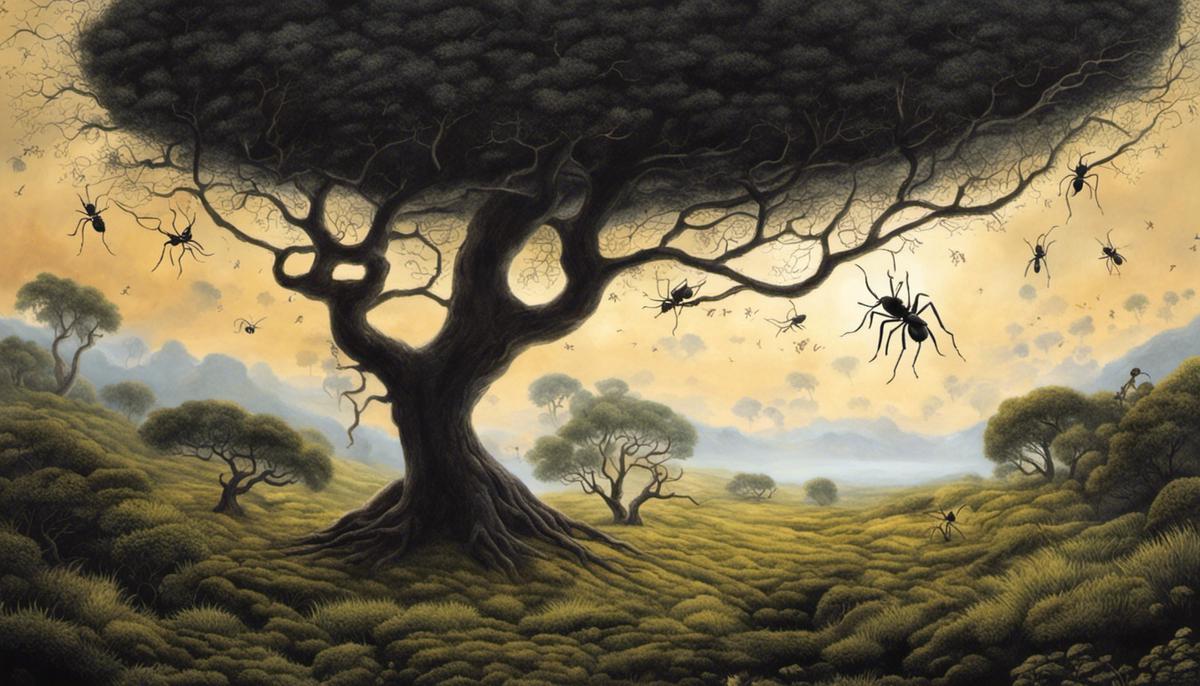
The symbolism, attributes, and teachings associated with black ants in the Bible and their appearance in dreams not only reflect the complexity of the human subconscious but also provide a profound spiritual insight. The interpretations drawn from understanding such encounters offer an exploration into the intimate relationship between our waking and dream states. While acknowledging the universal symbolism of hard work, unity, and foresight seen in ants, a dreamer might find nuanced, deeply personal insights regarding their spiritual journey and personal growth. Coupled with an understanding of biblical symbolism, the knowledge of such dreams plays a significant role in guiding one towards assimilating these teachings into their life.

